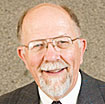Commentary on Exodus 12:1-4 [5-10] 11-14
Passover in the Old Testament is at the heart of the Exodus experience.
The Pharaoh who did not know Joseph (Exodus 1:8) stubbornly refused the demands of Moses and Aaron to “let my people go.” The tenth and climactic plague, the slaughter of the firstborn, finally forced Pharaoh’s hand. The threatened Egyptian firstborn represent all classes, from the firstborn of Pharaoh who sits on the throne to the firstborn of the female slave, not to mention the firstborn of all the livestock (11:5).
At midnight the tenth plague struck, involving all the firstborn, including even the firstborn of the prisoners (12:29). The Pharaoh went into crisis mode and told Moses and Aaron to leave at once and he adds an unusual parting request: Go, worship Yahweh, and bring a blessing on me too (12:31-32). The narrator does not pause to give all the gory details of the plague, but remembers instead one central purpose of all subsequent Israelite worship — to get a blessing for Pharaoh, heretofore their biggest enemy. So Israel is to pray for its enemies, just as Jesus would later say, “Love your enemies, and do good to those who persecute you” (Matthew 5:44; Luke 6:27, 35).
Passover Explained
Right in the midst of these dramatic actions in Exodus, the narrator pauses and gives instructions for the observance of Passover in Exodus 12:1-13, followed by instructions for the feast of Unleavened Bread (12:14-20). Scholars wrestle with the complicated background of these festivals, but one thing is clear in our pericope: Israel’s escape from the tenth plague was no accident. Every spring from now on, in the first month on the fourteenth day of the month, each household is to set aside a kid (either a lamb or a young goat), butcher it, roast it, and eat it — more or less on the fly: your loins girded, your sandals on your feet, staff in hand, eaten with haste (12:11). Who wants to stay in Egypt when freedom is just across the Reed Sea?
But it is the blood of that lamb that makes the difference. It is to be smeared on the two doorposts and the lintel of the doorway as a sign (12:7). The blood serves as a sign first of all for the Israelites, but more importantly a sign for Yahweh, who will see the blood and pass over each Israelite house. The rainbow in Genesis 9:14-15 is such a double sign too. First, it is a reminder to God of his everlasting covenant with Noah and all his heirs, just in case they might think that God has forgotten them. But of course it is not only God who sees that rainbow; we also see its seven colors and remind ourselves that God never forgets us. There is no threat for Israelites in that tenth plague. The blood of the lamb means life for them.
The Passover according to Exodus 12:48-49 was an inclusive festival. While no uncircumcised male could participate, resident aliens were welcome at the feast once they were circumcised. There is one admission ticket for native Israelites and resident aliens alike.
Passover and Lord’s Supper
Passover, of course, remains a central ritual in Judaism to this day, but Christians remember that in the Synoptic Gospels at least it was at a Passover celebration that Jesus instituted the Lord’s Supper. This meal too means liberation for all who partake, freedom from sin, freedom from the world, and freedom from all demonic powers.
As the Lord’s Supper, it is open to all whom the Lord invited, all the baptized, who remember that Christ our Passover is sacrificed for us. The blood of the one who hosts this banquet means that God will pass over the sins of all the communicants. As often as we eat this bread and drink this cup we proclaim the Lord’s death until he comes. The infinite One meets us in these finite elements: bread and wine/grape juice.
At the Old Testament Passover, the narrator said: When your children ask you what you mean by this observance, just tell them that we are remembering the night when Yahweh passed over all the Israelite houses (Exodus 12:26-27). That’s when we became God’s liberated people. And so at our Christian Eucharist, Lord’s Supper, or Holy Communion, we tell each other, especially our children, just why we celebrate this little banquet so frequently. It is not blood on our doorposts, but the bread and the wine, the body and blood of Jesus that says, “You are free!” It’s so real you can taste it.
All the baptized are welcome here — every age, every class, every gender, every sexual orientation, every race, sinners included. In fact, sinners — long-time-member sinners or new-to-the-faith sinners — are invited to be first in line. As we feast at this table, we hunger for those who have hurt us, who speak ill of us, or who even hate us. Can our healing of ourselves at this table lead us to pray that God would bring health to all of our enemies as well?
Our Eucharists catch us on the fly, between Saturday and Monday, or in this week between Passion/Palm Sunday and Easter. Our stay at the table is short term, just as Jesus stayed in the grave short term. We are soon on our way back into our daily life where we live out our freedom, for others.

March 28, 2013